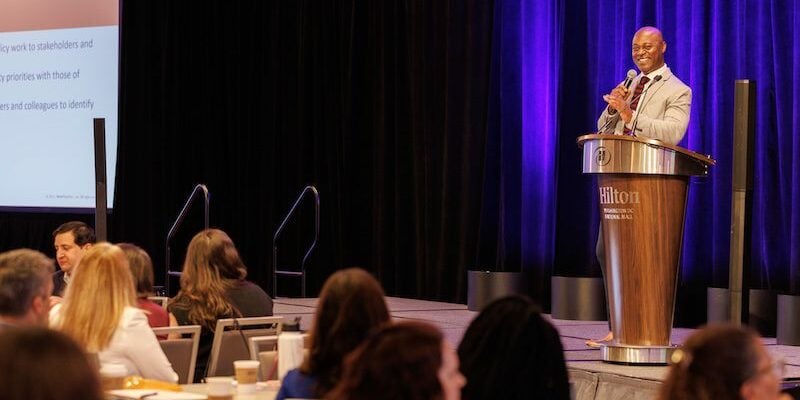When policies center on young people and families, we pave the way for greater economic mobility in our communities. The 2024 StriveTogether Policy Summit, held in Washington, D.C., brought together more than 150 members of the Cradle to Career Network to learn from experts and from each other. The energy was palpable, as network members began applying insights to both current and emerging opportunities — signs of the Network Effect in action.

The focus on implementation at this year’s summit was enlightening and actionable. We know that place-based partnerships are uniquely positioned to play a critical role in the policy cycle — from development and advocacy to rigorous implementation. StriveTogether President and CEO Jennifer Blatz captured this spirit in her summit opening, stating, “Today, we convene not only as changemakers but as architects of possibility. We’re here to reaffirm our commitment to forging pathways to prosperity for all our children.”
A few key themes and insights emerged from the summit to keep this work in motion:
Ground policy work in collaboration and community engagement
Building effective civic infrastructure requires a collective effort where every stakeholder, from local communities to national partners, plays a role. As Vaishant Sharma, senior policy advisor at the White House’s National Economic Council, emphasized, “What I think is exciting about [place-based policy] and why we’re here today is that communities are in the lead — looking to what people need on the ground and resourcing them appropriately.”
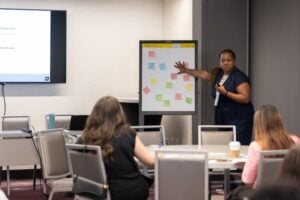
Understand power dynamics to catalyze action
Understanding and navigating power dynamics is crucial in the policymaking process. Power, as explained by StriveTogether policy consultant Cara Pugh, is neutral — it’s the ability to act. Her sessions on community engagement underscored the idea that relationships move power, and building those relationships is key to effective advocacy. She compared power to water, with policies acting as dams or glaciers, illustrating the importance of directing power toward positive change. Sen. Aric Putnam also reminded us that: “So much of politics happens in a context of artificial scarcity. What helps in moving this work is understanding the scarcity that we operate within is not accurate.”
Speakers discussed the periodic convergence of problems, solutions and politics which create windows of opportunity for change to occur. This alignment can drive significant policy shifts, but it requires readiness to act when those windows open. The need for legitimacy from both formal and informal institutions — support from schools, city councils, state legislators and community members — was highlighted as critical steps in advancing policy initiatives. By holding relationships between all of these institutions and convening them regularly in service of a shared community vision, cradle-to-career partnerships are able to create that legitimacy.
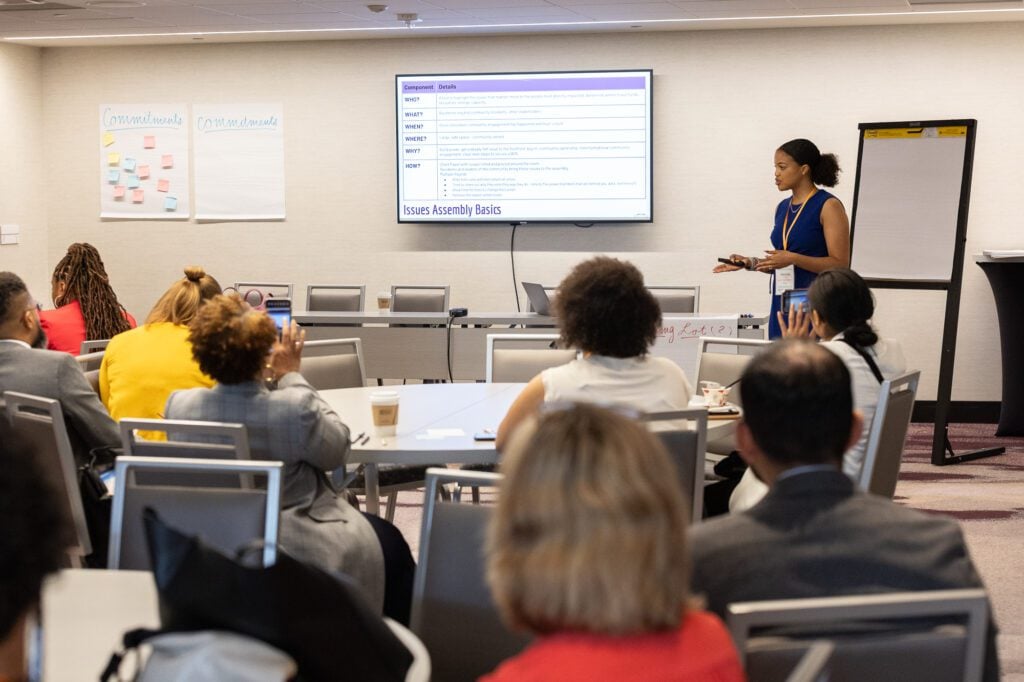
Tap into place-based partnerships
Schools are central to our efforts, but they cannot solve all problems alone. Keynote speaker Paul Reville noted that this work is civic work — work for the whole community. “It takes a village to educate a child,” he stated. “This is the new social contract. It is our responsibility to ensure that children thrive.” Moving beyond traditional schooling to address the whole ecosystem of childhood development is essential. This holistic view requires cross-sector collaboration, which Cradle to Career Network members make possible by holding the relationships, collecting the tools and establishing the accountability needed to bring a community together in service of economic mobility.
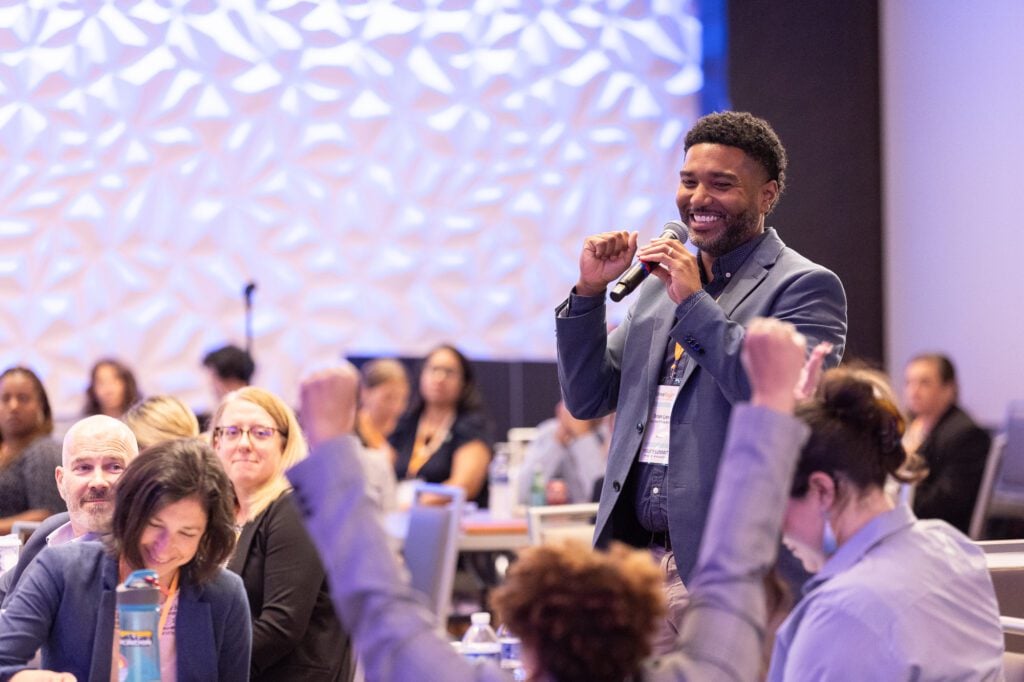
The Cradle to Career Network’s unique value proposition lies in its ability to act as a feedback mechanism throughout the entire policy cycle. Place-based partnerships have the insights and on-the-ground experience necessary to inform policy development, advocate effectively and ensure high-fidelity implementation. This year’s summit made it clear that network members are ready to apply the lessons learned effectively.
4 million futures, reimagined
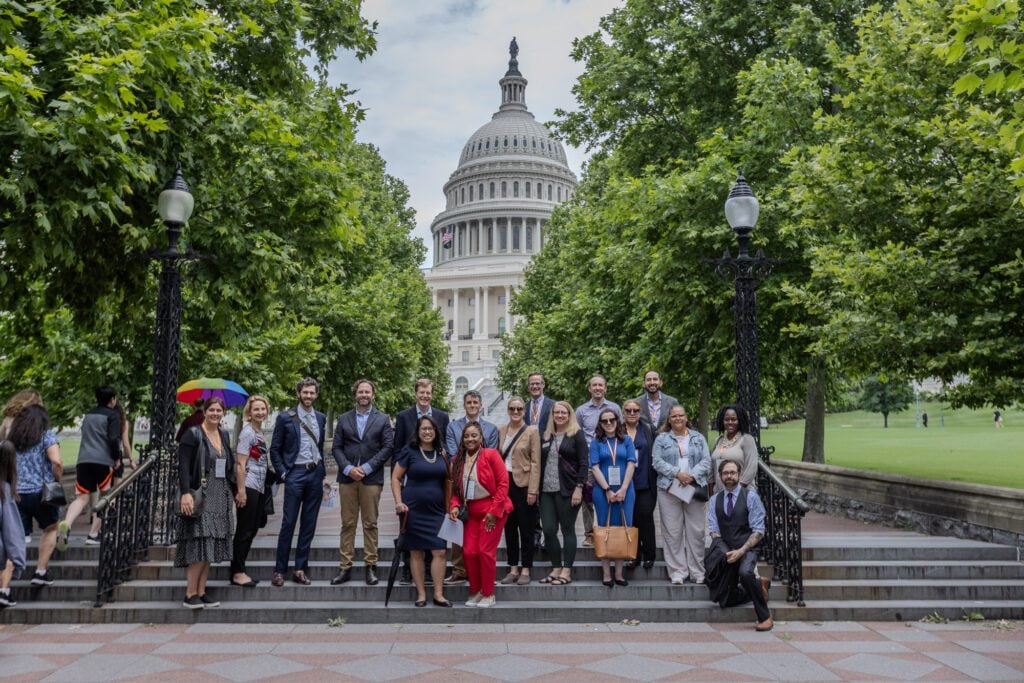
The 2024 StriveTogether Policy Summit showcased what’s possible when clarity, collaboration and community intersect. We are building more effective civic infrastructure at local, state and federal levels — from neighborhood to national — to create more opportunities for kids and families. Our unified, community-led priorities will harness our collective power to meet our shared vision. I’m certain that Cradle to Career Network members are positioned to navigate the complexities of systems transformation. In this, I’m reminded of the words spoken by Tauheedah Jackson of Harvard’s EdRedesign Lab: “Although this is hard work, this is the right work. This is the work we need to do in this moment.”
Together, we are not just changemakers but architects of possibility, committed to ensuring that every child has the opportunity to thrive. Let’s carry forward this renewed energy, knowing that we have the knowledge, strategies and people power to achieve our bold, collective goal of placing 4 million more young people on a path to economic mobility. Now, it’s time to act.

